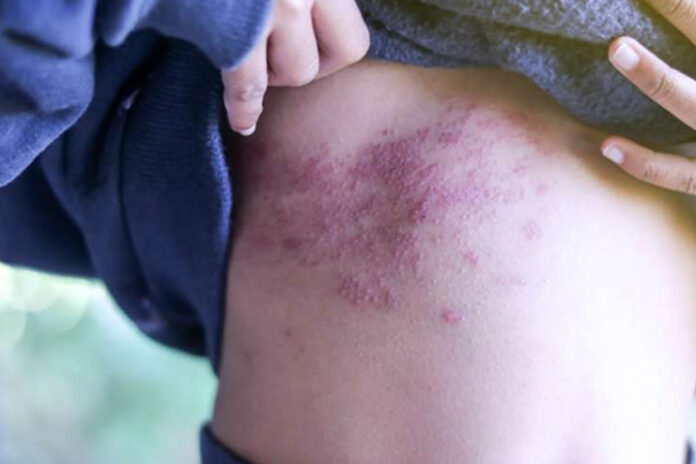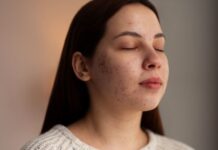Affiliate Disclaimer
Some links in this article are affiliate links. We may earn a small commission if you make a purchase through these links, at no extra cost to you. We only recommend products we find useful to our readersHaving tiny, itchy bumps on your skin can be annoying. These little irritants can come on gradually or suddenly, and they frequently leave you wondering what caused them and, more importantly, how to get rid of them.
Itchy bumps can occur for various reasons, ranging from environmental variables to allergic reactions, and they can disturb your serenity. The good news? You don’t have to put up with the pain for very long.
In this article, we’ll look at causes, symptoms, and effective natural treatment solutions to help you eliminate these bumps and return your skin to its natural balance, leaving it feeling calm, smooth, and itchy-free.
What are Common Causes for Small Itchy Bumps?
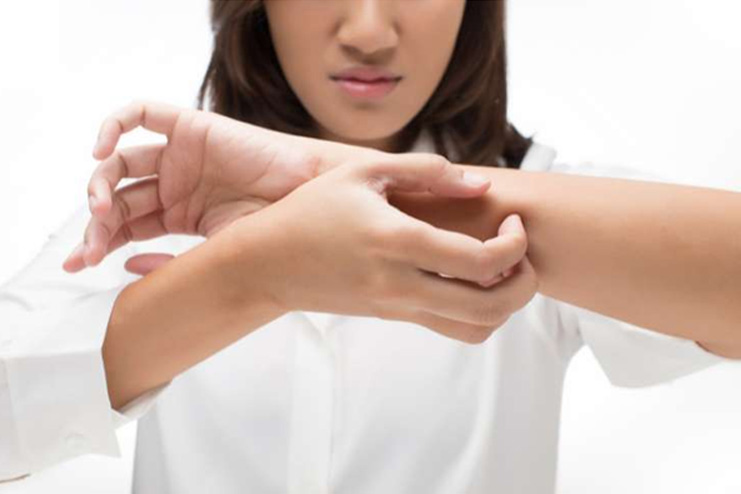
There are different causes of small, red, itchy bumps. These white, itchy bumps on the skin can appear due to improper hygiene and a lack of good skin care techniques, but there may also be other causes. Some of the major causes of small and itchy bumps on the skin are listed below.
1. Allergic reactions
Allergies can result from contact with various allergens such as cosmetics, skincare, haircare, and laundry detergents, leading to skin irritation or other conditions. Certain chemicals, fragrances, medications, and foods may also trigger allergic reactions, which can appear anywhere on the body.
Unlike localized allergies, these reactions may spread and, in severe cases, become life-threatening. If you experience frequent allergic reactions, it’s crucial to consult a doctor to identify any underlying cause and seek appropriate treatment.
Prompt medical attention ensures effective management and helps prevent potentially serious complications from these allergic responses.
2. Eczema
Eczema is another major skin disorder that can appear all over the body and cause inflammation of the skin or dermatitis. However, eczema more commonly appears behind your knees or elbows. The signs and symptoms of these rashes may differ according to the person; however, common symptoms are red, dry, and itchy small bumps.
3. Fabric rubbing
Itching or small bumps can result from clothing rubbing against sensitive areas of the skin, especially when combined with sweat, such as during workouts. This irritation often appears when athletic wear or tight clothing presses against the skin.
Fabrics like wool, which are bulky and scratchy, can also trigger itching, particularly around the neck. To identify if your clothing is the culprit, check if rashes develop in areas covered by specific garments. Softer, breathable fabrics can reduce irritation and keep your skin comfortable.
4. Bug Bites
Specific bugs or insects can also cause red bumps on the body, which can cause severe irritation. A significant example is a mosquito bite, which can cause a bumpy, itchy, red rash on the skin.
The main areas where these bumps may appear while sleeping are the shoulders, neck, face, and arms. These bumps may prove more severe to people with sensitive skin. Although these bites do not cause any severe medical conditions, it is essential to meet your doctor immediately if it is causing a lot of problems.
5. Sun allergy
Getting out in the sun from the cold atmosphere may cause the skin to break out, resulting in small, itchy red bumps. It is also considered a reaction of your body to the sudden exposure of your skin to the sun. Therefore, it is essential to use natural sunscreen lotions to avoid sunburns or sunspots.
What are the Symptoms and Signs of Small, Itchy Bumps on the Skin?
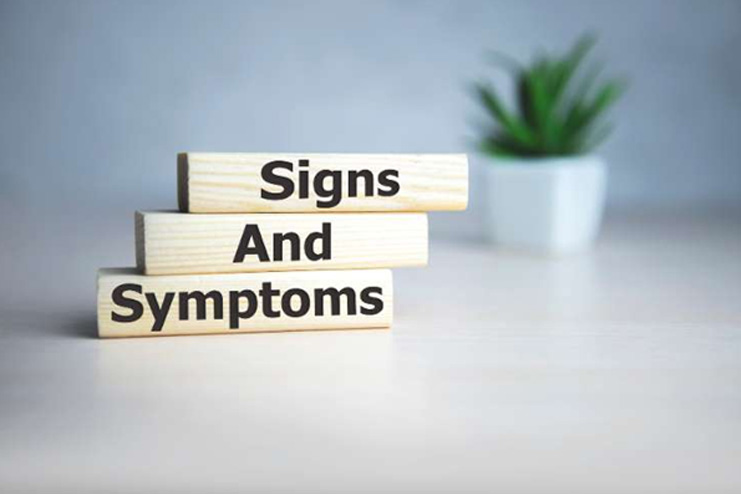
Small, itchy bumps on the skin can indicate a possible underlying problem in several ways. Frequently accompanied by ongoing itching, these lumps can appear red, flesh-toned, or somewhat enlarged. Some may contain fluid, like tiny blisters, while others may feel rough or scaly.
Although they can appear anywhere, the arms, legs, neck, and chest are common locations. In extreme situations, these bumps could group to create swollen skin areas. A burning feeling in the affected area, warmth, or tenderness are some symptoms to look out for. Early detection of these symptoms is crucial to addressing the underlying cause and stopping further discomfort.
Best Ways to Cure Small Itchy Bumps Naturally
You can get help from various natural home remedies to cure the problem of small, itchy bumps on your legs as well as other parts of the body. These natural home remedies are highly effective in small red, itchy bumps on the skin does not cause any side effects if used properly. Some major natural remedies for itchy skin and small bumps are listed below.
Home Remedies for Small Itchy Bumps
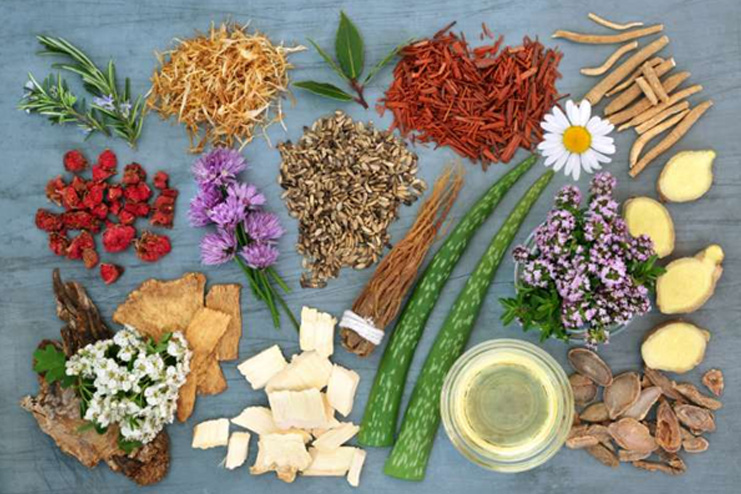
1. Apple Cider Vinegar
Apple cider vinegar is a health-friendly powerhouse thanks to its antiseptic, antifungal, and antibacterial properties. It’s particularly effective in relieving itching caused by dry skin, offering soothing relief. Additionally, apple cider vinegar can benefit pets experiencing dry, itchy skin—add it to their bathing water to help alleviate discomfort and promote healthier skin.
- Take a cotton ball with a few drops of apple cider vinegar.
- Place the cotton ball on the affected area and rinse it gently.
It is essential to use unadulterated, unfiltered, raw, organic apple cider vinegar, as it contains beneficial enzymes and bacteria.
2. Peppermint Leaves
Peppermint leaves offer a natural remedy for small, itchy bumps due to their cooling and soothing properties. Applying fresh peppermint leaf juice or a diluted peppermint oil solution to the affected area can reduce itching and inflammation, providing quick relief while promoting skin healing and comfort.
- Take some peppermint leaves and crush them.
- Apply the crushed leaves on the affected area and rinse it gently.
You can also use peppermint leaves and ice to reduce swelling and inflammation. Always choose ice made by freezing filtered, clean water.
3. Aloe Vera
Aloe vera is effective in reducing almost every kind of skin irritation. Although primarily used to treat sunburns, it helps soothe the skin and reduce inflammation and swelling.
- Take fresh aloe vera leaf and extract the gel from it.
- Apply the extracted gel to affected area.
- Leave it for a few minutes, then wash it with water.
- Rinse it gently while washing.
You can also keep the gel in a refrigerator and then apply it. It will also provide a cooling effect.
4. Oatmeal
Oatmeal helps reduce inflammation as it contains an important compound known as avenanthramides. It is also one of the most effective traditional medicines for treating various skin diseases. You can opt for an oatmeal bath to reduce bumps in difficult-to-reach areas.
- Crush some fresh oatmeal.
- Add water in the and mix well.
- Make a thick paste of it.
- Apply the paste to the affected area.
- Leave it for 2-3 minutes.
- Then, wash it off with water.
5. Basil Leaves
Basil leaves are another best remedy for small, itchy bumps. They help reduce itching as they contain health-friendly compounds such as thymol and camphor. You can use basil leaves to cure small bumps on the skin caused by bug bites. You can also rub the affected area with basil leaves, satisfying the urge to scratch the area due to itching and proving helpful.
- Take some basil leaves.
- Crush them well.
- Apply crushed leaves directly to the affected area.
Essential Skin Care Tips
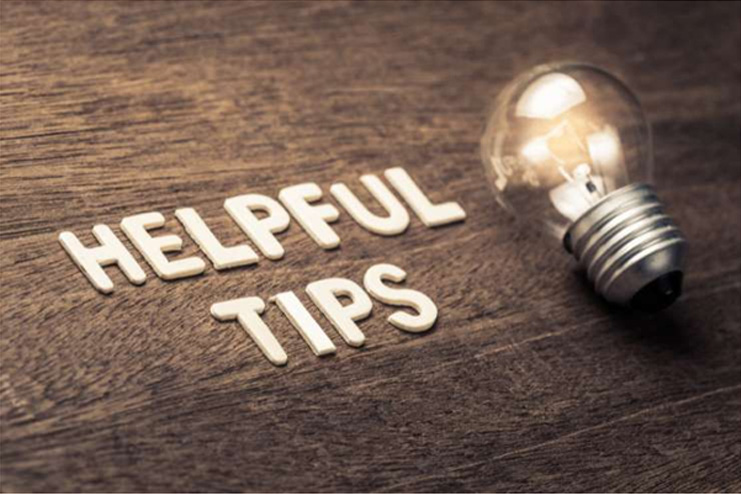
Preventing those small, itchy bumps from appearing or spreading is easier than you think—simply by adopting a few essential skin care habits. Not only will these habits keep your skin smooth and irritation-free, but they’ll also help stop those bumps from spreading. Check out helpful tips to get started!
- Vitamin C can help eliminate various infections, including skin infections. Thus, increasing the amount of vitamin C in your diet is essential.
- Do not apply petroleum jelly or mineral oils to the bumps, which may exacerbate the problem.
- Avoid using deodorants, antiperspirants, and body lotions, which are rich in chemicals that eliminate the formation of bumps on the skin due to allergies.
- Start drinking a lot of water to flush out all the toxins from the body and beneath the skin. It will also help regulate body temperature and keep you hydrated.
- Reduce the risk of fungal infection by increasing the probiotic content in your diet.
When to See a Doctor
Getting medical attention is necessary if your itching bumps worsen or you start experiencing unsettling symptoms. Keep an eye out for infection symptoms like pus or fever, as these could point to a bacterial problem. A visit to a healthcare provider should also be prompted by continuing or worsening symptoms that do not go away with home remedies. Additionally, getting medical help immediately is critical if you observe allergic reactions spreading and resulting in swelling, breathing difficulties, or severe discomfort.
Conclusion
Although minor itching skin bumps might be bothersome, they can easily be treated with the correct technique. Finding relief requires knowing the underlying reason, whether friction, allergies, or skin disorders. You may restore the comfort and health of your skin by using natural therapies, adopting healthy skin practices, and recognizing when to get medical care.
FAQs
Is it safe to scratch small, itchy bumps?
Scratching can exacerbate irritation and increase risk of infection. To lessen discomfort, it is crucial to refrain from rubbing and employ soothing techniques.
Are small, itchy bumps contagious?
Scabies or chickenpox usually cause small, contagious itching bumps. If you notice bumps spreading or becoming more severe, seek medical advice to rule out infectious conditions.
How can I prevent small, itchy bumps from recurring?
Wear breathable clothing, avoid known allergens, keep your skin hydrated, and follow a regular skincare routine to prevent recurrence. Stress management and proper hydration also support healthy, irritant-free skin.
-
July 2017Written by Prajakt K
-
Nov 2024Edited by Ankita
In this Article














